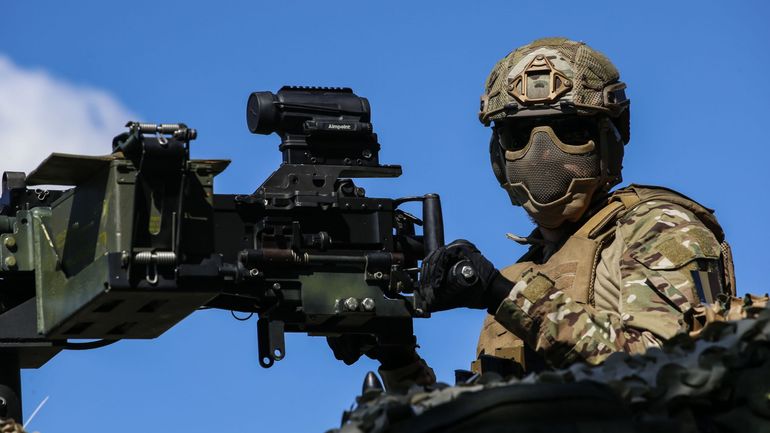The military intelligence service SGRS is keeping a group of around 30 serving soldiers under close surveillance, on suspicion they have extreme right-wing or neo-Nazi sympathies, the RTBF has revealed.
The question of a presence of right wing extremists in the Belgian forces arose after it was revealed that the French army contains a sizeable number of extremists, who display their affiliations openly and apparently without any sanction.
The problem of right-wing extremists is not new, although in recent years attention has concentrated more on an increase in Islamist extremism within the armed forces.
As recently as last year, however, with the declining influence of IS, the intelligence services have turned their attention to right-wing extremism, which appears to be on the rise – at least partly as a reaction to Islamic extremism and to successive waves of refugees and migrants escaping that very problem.
The RTBF contacted Tony Bargibant of the union that represents members of the armed forces, to find out if Belgium has the same problem as that revealed in France.
“As far as I know, the SGRS carries out checks at this level. So there could be problematic cases but it is a tiny minority, they hardly represent anything. The problem is not the same as in France,” he said.
If the intelligence service has any reason to suspect a particular person, he explained, they start a campaign of close surveillance, involving the person’s online life as well as every detail of their private activities.
That report was confirmed to the RTBF by a spokesperson for the defence ministry, run by Ludivine Dedonder (PS), who pointed out that the SGRS is aware of a rise in right-wing extremism.
“We have a platform that works on non-religious extremism, including the far right. The SGRS focuses on the extreme right within the armed forces,” the spokesperson said.
“We are currently following around 30 soldiers very closely, for their sympathies or their obvious links with radical right-wing groups. It’s important to follow and we’re doing it well. We dig and we find. Screening is working well. However, we wish to stress that the threat remains minimal within the military.”
And while some active cases are under investigation, the military aims to screen out possible cases at the recruitment stage.
“New recruits must pass certain tests and in particular an interview with a psychologist and other doctors,” Bargibant explained.
“That is when problematic cases can be detected. A screening is also carried out on each candidate, into whether a candidate has, for example, a criminal record on the subject or an obvious link with an extreme right-wing group. Then they will not be engaged either. The forces have put things in place to avoid hiring a person close to extreme ideologies whatever they may be,” he said.
Alan Hope
The Brussels Times

